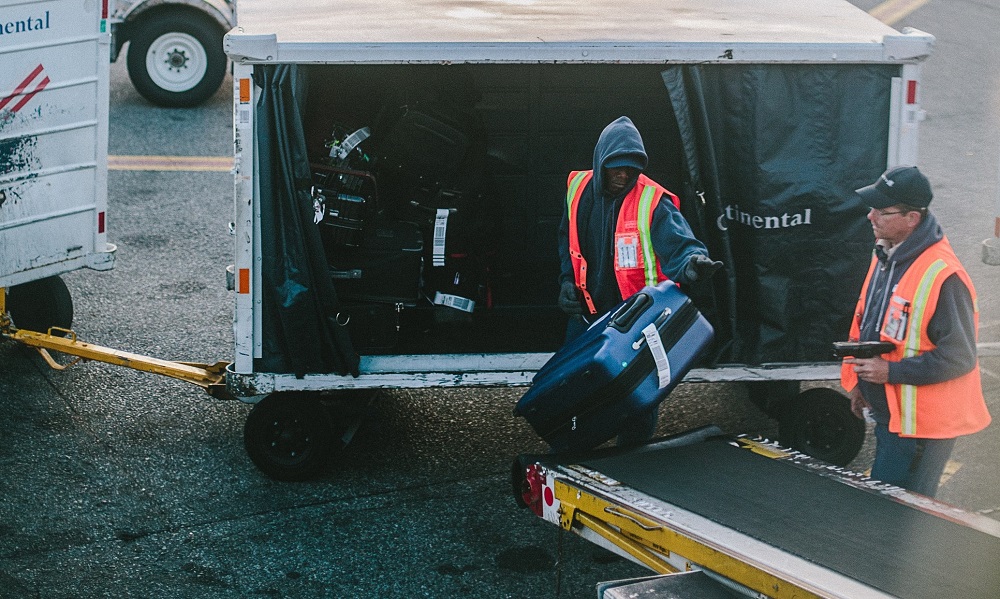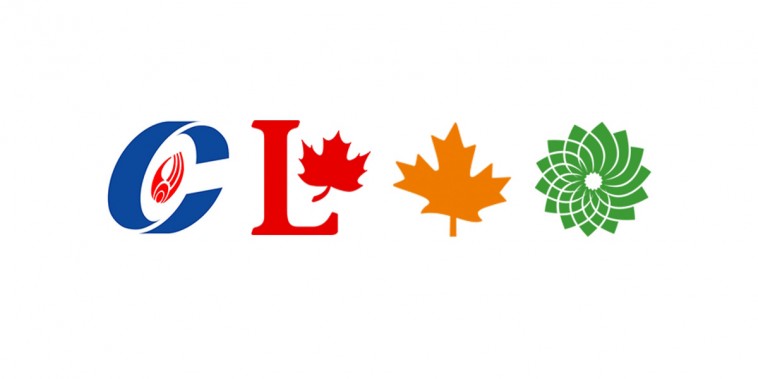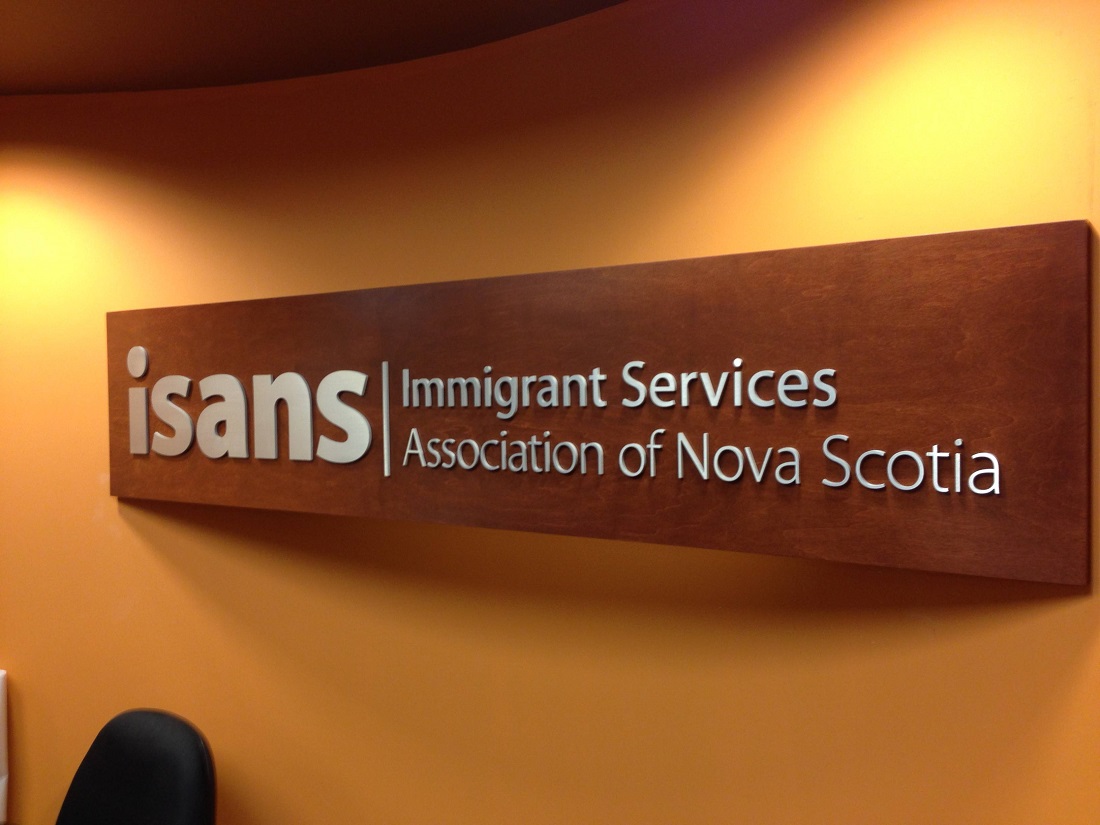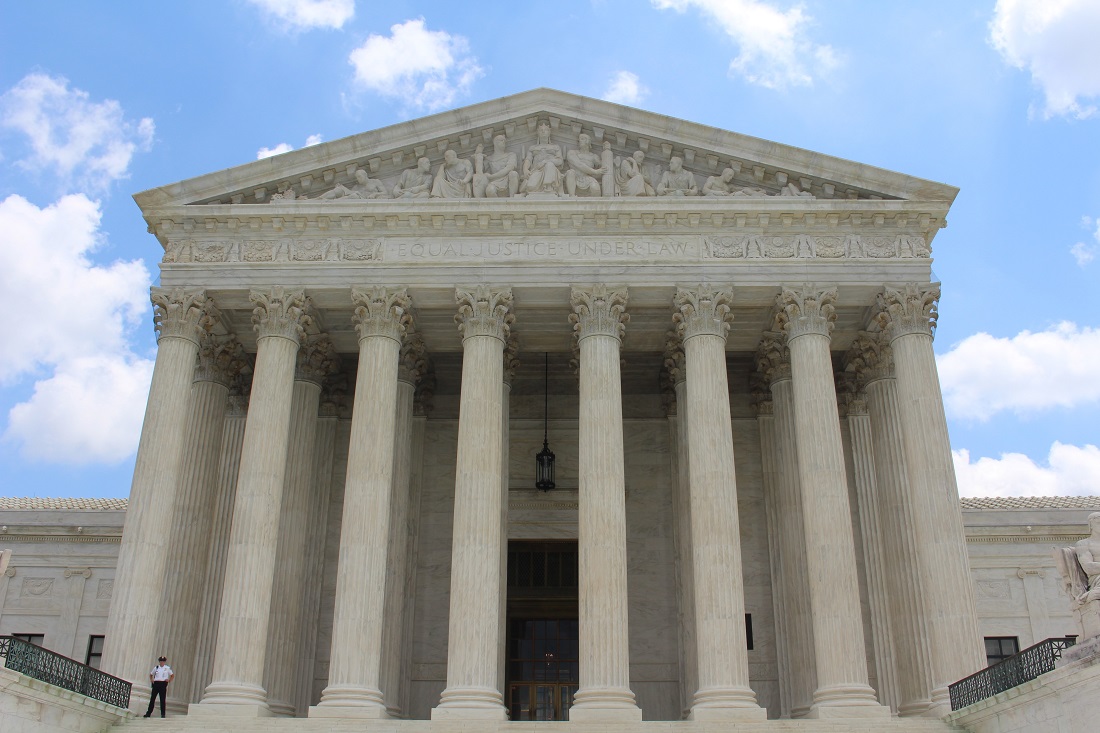Immigration Program Proposed by Liberal Party Could Help Curb Quebec Labour Shortage
Quebec May Opt-Out of Proposed Immigration Program That Could Fill Over 100,000 Job Vacancies in The Province
The Canadian Liberal Party’s election platform has promised to help small, rural municipalities access more immigrants to help curb labour shortages through a new immigration program.
If the Liberals are elected during the upcoming federal election, the program would help address the massive amount of job vacancies across the country, particularly in Quebec.
But because the Quebec provincial government has pledged to reduce immigration, the province may choose to opt-out of the program, which could negatively affect many communities in desperate need of more workers.
The proposed program would be called the "municipal nominee program” and would mirror a similar program in place at the provincial level.
The Liberal platform has not revealed too many details about the program, but claims that it will create at least 5,000 spots for newcomers. This is actually quite minimal compared to Canada's overall immigration numbers, as the country is set to accept over 330,000 new immigrants by the end of this year.
Unfortunately, for many rural communities across Quebec experiencing a massive labour shortage, this program does not line up with the province’s goal of reducing immigration.
The Conseil du patronat du Québec (CPQ), a group that lobbies for Quebec business interests, told CBC that the labour shortage across the province is dire and expected to worsen as more baby boomers continue to retire.
In recent years, Quebec communities such as Saint-Georges have welcomed thousands of newcomers to help fill job vacancies. The population of Saint-Georges in particular has grown to 32,000 in the past five years and is booming due to the increase in immigration.
However, throughout the rest of Quebec, labour shortage persists, with an estimated 120,000 vacant positions and not enough workers to fill them.
The municipal nominee program proposed by the Liberal Party could potentially help communities fill these vacancies.
Despite the widespread labour shortage in the province, since the Coalition Avenir Québec was elected back in 2018, the party has promised to reduce the number of economic immigrants allowed in Quebec by 20 per cent this year.
The Liberal Party on the other hand has said they would not be able to force Quebec to take part in the municipal nominee program, as the province has the authority to control economic immigration.
Whether or not Quebec will actually opt-out of the program if the Liberals are elected is currently unknown, as a spokesperson for Quebec's immigration ministry told CBC that it would not be commenting on any federal election promises.
Migrant Mothers and Children Sue U.S Government Over Controversial Asylum Rule
U.S Supreme Court Rules in Favour of Trump’s ‘Safe 3rd Country’ Asylum Rule
Over 125 migrant mothers and children are suing the United States government after the Supreme Court recently ruled that the Trump administration could enforce a controversial rule regarding asylum eligibility.
The policy, also known as the ‘Safe Third Country’ rule, was announced in July and allows asylum applicants to be denied entry to the U.S if they did not first apply for asylum in another ‘safe’ country that they travelled through en route to the U.S. This could include countries like Mexico or Guatemala.
The implementation of this new rule means that immigration judges can now reject asylum claims, regardless of their merits, if the applicant did not first seek haven in another country before arriving at the U.S border.
This policy is expected to dramatically reduce the number of migrants granted asylum in the U.S. Immigration advocates have argued that this would pose a serious risk to vulnerable migrants who would be forced to face serious danger upon their return.
Following the Supreme Court’s recent ruling, judges and asylum officers have been directed to enforce the rule, despite the fact that it is currently being challenged in court.
Other lawsuits have already been filed that challenge the ‘Safe 3rd Country’ rule and lower courts had agreed to block its implementation. However, the Supreme Court ruled otherwise and found no reason why it should be blocked as these lawsuits make their way through the courts.
These legal challenges are ongoing, and decisions are not expected to be made before the 2020 U.S federal elections. In the meantime, thousands of asylum claims are expected to be rejected.
The migrant plaintiffs to the new suit are suing the U.S. government on the grounds that the Trump administration has violated the rights of asylum-seekers by essentially implementing an asylum ban at the southern border.
But unlike the other lawsuits which challenged the asylum rule itself, the suit filed on behalf of the mothers and children goes after the Trump administration on procedural grounds. The plaintiffs argue that the U.S government has implemented policy changes without warning, resulting in high amounts of asylum applications being suddenly rejected.
The plaintiffs include 126 women and their children who are mostly from Central American countries such as El Salvador, Honduras and Guatemala. According to Reuters, the women and children had been rejected in the early stages of the asylum process while being held at a Family Residential Center in Texas.
The suit was filed in Washington, D.C.
Priorities Change Among Canadians, Immigration No Longer Pressing
Election Poll Finds 14% of Canadians Consider Reducing Immigration A Top Issue
As Canada quickly approaches a Federal election, immigration is proving to be a low priority when it comes to how Canadians will cast their votes.
According to an election poll conducted by Ipsos for Global News and La Presse, immigration received among the fewest votes when it came to which election issue will most influence the respondents’ voting decision.
The poll asked respondents to pick three topics they consider to be the most important when it comes to how they plan to vote.
Other issues respondents could choose include:
- Health care
- Affordability and cost of living
- Climate Change
- The economy
- Taxes
- Housing
- Poverty and social inequality
- Senior’s issues/aging population
- Corruption and ethics in government
- Education
- Government deficits/debt
- Unemployment/jobs
So, what were the top issues?
Health care came out on top at 35 per cent, affordability and the cost of living at 27 per cent, climate change at 25 per cent and the economy at 24 per cent. Immigration received 14% of the vote.
The poll also found that those who did indicate that immigration was a key election issue were more concerned with reducing immigration rather than improving the process or bringing in more newcomers.
Among those who selected immigration as a top priority, 49% felt that Canada accepts too many immigrants, 31% were concerned about irregular border crossings, and six per cent had concerns about Canada’s role in aiding in the current refugee crisis. Only five per cent felt that Canada should increase immigration.
However, this anti-immigration rhetoric was not consistent among respondents across the country.
The province of Quebec had the highest number of votes in favour of reducing immigration in all of Canada – 17% – and Atlantic Canada the least.
The poll also found that Canadians planning to vote Conservative, or for the People’s Party of Canada (PPC) or Bloc Québécois are more likely to consider immigration a priority this election.
The Conservative Party has not yet commented on where the party stands on immigration policies, however, the PPC has made public its desire to reduce overall immigration to Canada.
The Liberal Party currently in power has also not officially released its election platform but has a track record of supporting immigration. In fact, back in late 2018, the Liberal government announced its intention to boost Canada’s immigration intake over the next three years by increasing its target to 350,000 newcomers by 2021. The majority of these new immigrants will arrive under economic immigration programs that address gaps and shortages of skills in Canada’s labour market.
Nova Scotia Association Pleas for Government Support of Refugee Sponsorship Program
Immigration Services Program’s Resources Strained in Light of Massive Surge in Refugee Resettlement
With immigration and refugee resettlement surging throughout the province of Nova Scotia, an immigration services association based in the province is calling for government support of its private refugee sponsorship program.
According to Global News, the program, which is run by the Immigrant Services Association of Nova Scotia (ISANS), is currently funded by the province and the federal government, but is in need of additional support in order to manage the massive surge in sponsorship requests.
ISANS is a sponsorship agreement holder, which means it has an agreement with the federal government to help support refugees when they resettle in Nova Scotia.
The Halifax based organization has been allocated 98 spots for individuals to privately sponsor refugees from the federal government. However, this year, the organization has received an overwhelming number of requests to sponsor nearly 800 refugees.
And while the federal government has been steadily increasing the number of allocated spots over the last few years – with a total of 454 new spaces allocated for the entire province by 2019 – it is still not enough for ISANS to accommodate the massive amount of resettlement occurring in Nova Scotia.
In fact, in the first 9 months of 2019 alone, the number of new permanent residents in Nova Scotia is already higher than the same point in 2018.
According to a press release from the province of Nova Scotia, the province broke its own record by welcoming 3,393 permanent residents so far this year, compared to just 2,965 between January and August of 2018.
With Canada’s federal election coming up in October, ISANS CEO Jennifer Watts told Global News that the surge in immigration to the province has put a strain on the organization’s other services, increasing the need for a boost in financial support from the government.
Therefore, it’s crucial that the association continues receiving financial support from whichever party ends up forming the country’s next government.
“What we would like to see is support and increasing funding because although there may be an investment in the beginning, we absolutely know, in the long term, the impact [these programs will have] that will benefit Canada,” said Watts, adding that the refugee sponsorship needs the government’s help the most.
19 States Sue Trump Administration Over Efforts to Cut Child Migrant Protections
California Leads Multi-State Legal Battle Challenging Controversial Immigration Rule
Nearly 20 US states –including the District of Columbia – are suing the Trump administration over a new rule that would lift important protections for child migrants and allow the government to detain children in immigration detention facilities indefinitely.
According to Reuters, the lawsuit filed in U.S. District Court in Los Angeles was the first move in an expected legal battle aiming to challenge the rule and prevent it from taking effect this fall.
The new rule puts an end to a longstanding agreement, known as the Flores settlement, which limited how long children could be detained in immigration detention facilities to 20 days for the last 22 years.
It would also allow for the expansion of family detention centers that are not state-licensed.
Currently, the US Immigration and Customs Enforcement (ICE) operates just three family detention facilities in Texas and Pennsylvania which have between 2,500 and 3,000 beds.
The rule was immediately met with controversy and is now being challenged legally.
The multi state lawsuit led by the state of California and Massachusetts argues that the new rule would eliminate minimum protections for child migrants and pose irreparable harm to their physical and mental well-being.
The complaint will also argue that the new policy violates migrants' due-process rights and undermines California’s ability to ensure proper conditions at detention facilities along with the health, safety and welfare needs of detainees.
This isn’t the first attempt by the state of California to challenge policies brought forth by the Trump administration.
California currently has the largest immigrant population in the country, and since Trump’s election in 2016, the state has launched a total of 57 lawsuits against the government. Of the 57 lawsuits, 13 involve immigration policies.
In fact, just recently in August, the state launched another lawsuit attempting to block a federal immigration rule that would penalize low-income immigrant families that are reliant on public assistance programs.
The new “public charge” rule set to go into effect October would essentially make it more difficult for immigrants to obtain permanent resident status if they have used or are deemed highly likely to use public assistance benefits such as food stamps, housing vouchers, or Medicaid.
It would also make it more difficult for low-income families to immigrate to the US in the first place.
California Attorney General Xavier Becerra recently filed for a temporary injunction to block this rule from taking effect.





